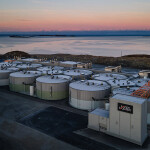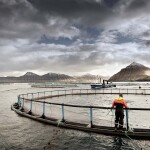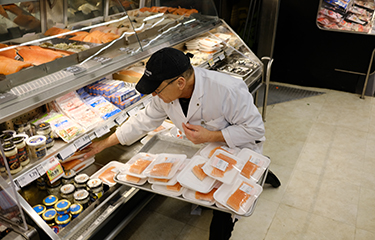The CEOs of Canada’s five biggest grocery chains – Walmart, Costco, Loblaw, Sobeys, and Metro – have agreed to work with the federal government to stabilize grocery prices.
Canadian Industry Minister François-Philippe Champagne and the country’s finance minister, Chrystia Freeland, met with the CEOs in Ottawa on 18 September The industry leaders were under pressure to come to an agreement after being threatened with higher taxes by Canadian Prime Minister Justin Trudeau, according to the Canadian Broadcasting Corporation.
"If their plan doesn't provide real relief ... then we will take further action and we are not ruling anything out, including tax measures,” Trudeau said. "Food is too expensive for too many families and they're making record profits and that's why we're holding them to account.”
In mid-September, Trudeau said he would introduce several amendments to Canada’s Competition Act, including giving the Canadian Competition Bureau powers to compel the handing over of customer data, restricting mergers between companies, and preventing large grocers from starving out smaller competitors.
During the meeting, each retailer agreed to work together to develop a plan to tackle grocery price inflation before Canadian Thanksgiving on 9 October, according to Champagne.
"As you would expect, those are difficult discussions but much-needed discussions at a time that Canadians are feeling the high prices of groceries," Champagne said. "I appreciate the constructive nature of the discussions we had. The bottom line is that they agreed to work with the government to stabilize food prices in Canada."
Metro CEO Eric La Fleche called high prices an “industry issue,” and said the talks were centered on consumer packaged goods rather than fresh foods.
“We’re all committed to finding solutions to stabilize prices and bring down the [consumer price index] on the food side,” he said.
The Retail Council of Canada described the meeting as “constructive and informative.”
“There was also alignment that any discussions on food prices must include all members of the complex supply chain,” RCC Spokesperson Michelle Wasylyshen wrote in a statement sent to the Global News. “This is something that we have called for consistently, given that 70 percent to 80 percent of grocery checkout prices arise before food even gets to Canada’s grocers.”
The record-high grocery inflation has not eased in Canada, as it has in the U.S. In Canada's Food Price Report 2023, experts from Dalhousie University, the University of Guelph, the University of Saskatchewan, and the University of British Columbia predicted Canadian families will spend up to CAD 1,065 (USD 793, EUR 742) more on groceries in 2023.
"We haven't seen food price increases this high in Canada for over 40 years and based on our findings, the increases we have predicted are still quite high but not as high as the increases for 2022," University of Guelph Campus Lead Simon Somogyi said in a press release in January.
Photo courtesy of nomis_h/Shutterstock







